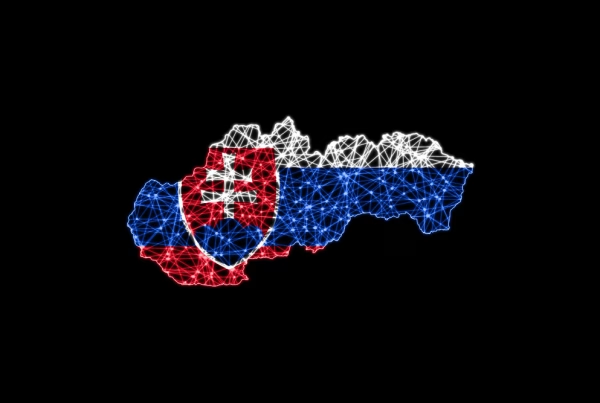Kahnawake Gambling Licence – Introduction
Starting an online casino venture requires a comprehensive grasp of the iGaming landscape, including its regulatory frameworks and operational intricacies. Success in this dynamic industry hinges on obtaining proper licensing – a non-negotiable requirement for any operator looking to provide services legally.
The licensing process demands careful consideration, as it fundamentally impacts your business’s growth trajectory. Many operators are increasingly gravitating towards the turnkey model, which involves securing their own licenses while purchasing licensed software solutions. This approach provides operators with complete autonomy over their operations and ensures full control over regulatory compliance measures.
In this comprehensive guide, we’ll explore everything you need to know about the Kahnawake gambling license, from its key benefits to associated costs and beyond.
Kahnawake Gambling Licence Main Points
Navigating licensing requirements independently can be overwhelming, given the complex interplay of legal, financial, and technical considerations. This article aims to demystify the Kahnawake license, providing you with a clear, straightforward understanding of its operational framework.
The Kahnawake Gaming Commission (KGC) administers two primary license categories: interactive gaming licenses and those for traditional brick-and-mortar casinos.
Within the interactive gaming sphere, the Commission offers various license types catering to both B2B and B2C segments of the iGaming industry. Let’s examine the available licensing options, each designed to address specific operational requirements.
B2B Options
- Interactive Gaming Licence (IGL) enables the provision of hosting services for iGaming operators within the Kahnawake Mohawk Territory (the Territory). This exclusive license has been held solely by Mohawk Internet Technologies (MIT) since 1999.
- Casino Software Provider Authorisation (CSPA) permits the operation of gaming equipment hosted by an IGL holder. Additionally, it enables the licensing of casino software to other online operators offering casino, betting, or poker services.
B2C Options
- Client Provider Authorisation (CPA) enables companies to offer Internet gambling services through an IGL holder’s hosting facility within the Territory. The KGC places no restrictions on the number of CPAs issued.
- Live Dealer Studio Authorisation (LDSA) permits the operation of Live Dealer Studios, the conduct of Live Dealer Games, and related interactive gaming activities within the Territory.
Other Options
- Key Person Licence/Permit (KPL) is granted to individuals who hold crucial managerial or operational positions within organizations possessing CPA and CSPA licences. This licence serves as the initial stepping stone in the comprehensive licensing journey.
- Interjurisdictional Authorisations (IJA) are specifically designed for businesses that already hold an IGL from another jurisdiction and wish to relocate their equipment, staff, or both to operate within the Kahnawake Mohawk Territory.
| LICENCE | Cost USD | Annual Fee USD | Renewal USD | Duration |
|---|---|---|---|---|
| IGL | 30,000 | 15,000 | 5,000 | — |
| CPA | 40,000 | 20,000 | 5,000 | 5 years |
| CSPA | 40,000 | 20,000 | 5,000 | 5 years |
| LDSA | 30,000 | 10,000 | 5,000 | 5 years |
| IJA | 2,000 | 10,000 | — | — |
| KPL | 5,000 | 1,000 | 2,500 | — |
Types of Gameplay Covered By Kahnawake Licences
The Kahnawake licensing framework presents operators with exceptional opportunities to flourish in a well-regulated gaming ecosystem. Here’s why securing a Kahnawake licence should be at the forefront of your business strategy:
Online Casinos
Kahnawake-licensed online casinos deliver regulated virtual gaming experiences to players. These platforms maintain stringent standards for fairness and player protection while offering everything from traditional table games to engaging slot experiences.
Sports Betting Platforms
The Kahnawake licensing framework encompasses sports betting operations, ensuring a protected betting environment with comprehensive risk management systems designed to combat fraud and protect bettors’ interests.
Live Dealer Casinos
Under Kahnawake licensing, live dealer casinos deliver authentic gaming experiences featuring real-time gameplay and professional dealers, maintaining high standards of fairness and authenticity.
Land-Based Casinos
The Kahnawake licensing framework extends beyond the digital realm to include traditional brick-and-mortar establishments. These licensed venues provide a secure, regulated environment for various casino games.
Land-Based Poker Rooms
Kahnawake-licensed poker rooms offer enthusiasts a regulated space to enjoy diverse poker variants in a secure setting.
A Brief Overview and History of Kahnawake Gambling Licence
The Kahnawake Mohawk Territory, a First Nations Reserve situated in Quebec, Canada, exercises self-governance rights, enabling independent gaming legislation. It stands among the pioneering jurisdictions worldwide in online gambling regulation.
- 1982: The Constitution Act 1982 formally acknowledges the Territory and validates its gaming regulatory authority.
- 1996: The establishment of the Kahnawake Gaming Commission (KGC) marks a milestone in overseeing land-based casino compliance and licensing.
- 1999: Kahnawake pioneers online gaming regulation by implementing the Interactive Gaming Regulations for online casino licensing.
Today, the KGC’s mandate encompasses:
- Creating a legal framework for interactive gaming oversight in Kahnawake
- Ensuring ethical, responsible, and equitable gaming conduct
- Preventing interactive gaming’s association with illegal activities
- Guaranteeing fair player treatment, timely payout processing, and strict player data confidentiality
- Protecting minors (under 18) and vulnerable individuals
The KGC currently oversees an extensive portfolio, including over 50 operators and licenses for more than 250 gaming operations globally, comprising one IGL, three CSPAs, and numerous CPAs.
Kahnawake Licence in 2025
The was established in 1999, marking a defining moment in the supervision of online gaming activities within the Kahnawake Mohawk Territory.
By implementing rigorous standards for , security protocols, and , the KGC has been empowered to grant licenses to operators who demonstrate compliance with these comprehensive criteria, cementing Kahnawake’s position as a trusted jurisdiction for online gambling operations.
These Regulations have undergone strategic refinements to keep pace with industry innovations while maintaining unwavering dedication to gaming integrity and player safeguards.
The KGC has recently implemented two significant changes:
- A comprehensive overhaul of the in October 2023, enhancing accessibility and providing up-to-date information.
- An increase in licensing fees during this period, requiring businesses to thoroughly evaluate the financial implications of license acquisition.
It’s worth noting that the KGC has maintained consistency in its application procedures and licensing regulations, providing stability for operators.
Advantages of the Kahnawake Licence: Why You Should Get the Kahnawake Licence?
The Kahnawake gaming licence commands international respect and presents an attractive option for companies seeking to establish their online casino or iGaming brand. This licensing option particularly appeals to North American businesses and emerging startups, offering numerous benefits. Here are the key advantages of obtaining a Kahnawake licence:
- Flexible licensing framework offered by the KGC enables operators to choose the most appropriate licence type for their specific online gambling operations, whether they’re focused on casino games, poker rooms, or sports betting platforms.
- Zero taxation on gross gaming revenue presents a significant financial advantage, allowing operators to retain a larger portion of their earnings for reinvestment and business expansion opportunities.
- The competitive application costs, while higher than Curacao but more affordable than the Malta Gaming Authority (MGA) and other European jurisdictions, make it an economically viable option for operators. However, navigating the intricate bureaucratic requirements can be challenging, making professional guidance from experienced consulting firms highly recommended.
- Known for being one of the most stringent international licences in terms of compliance standards and iGaming best practices, the KGC takes player complaints seriously. They conduct thorough investigations of all reported issues and don’t hesitate to revoke licences when violations are confirmed.
- The efficient licensing timeline is another notable advantage. While the application preparation requires careful attention, the subsequent review and approval processes move swiftly. Typically, operators can secure their Kahnawake licence within approximately four months of submission.
- The KGC maintains a strong focus on player protection across all licensed platforms. Operators must meet and maintain strict operational standards to obtain and retain their licence, with particular emphasis on responsible gaming practices, honest operations, and fair player treatment.
Kahnawake Licence Application Process
The complete licensing journey spans approximately six months, with each phase carefully designed to ensure the integrity and reliability of the Kahnawake iGaming Licence. Prospective licensees can approach these stages with assurance, knowing that this thorough process establishes a secure and responsible gaming environment under KGC oversight:
- Preparation and Compliance (1–3 months): Companies must first ensure they meet all prerequisites, including capital requirements, management team qualifications, and a comprehensive business strategy. The timeline may vary based on initial readiness. To initiate the application for any Kahnawake licence category, applicants must complete the required documentation.
Additional required documentation includes:
- Detailed biographical information or CV for each board member
- Corporate annual reports covering the previous three-year period
- Payment of applicable licence fees must be submitted before application processing begins
- Application Phase (1–2 months): Following submission to the KGC, applications undergo a thorough review and investigation process lasting 4 to 8 weeks, contingent upon complete disclosure, following these steps:
- The process begins with operators submitting their application package along with the required fee to the KGC. The Commission then assigns a dedicated Compliance Officer who oversees the entire application journey.
- Following the initial submission review, a comprehensive investigation commences. If all documentation is complete and no additional information is required, the licence can be issued within the projected timeframe.
- The application undergoes evaluation at the next scheduled KGC meeting. Should the application be declined, applicants receive a full refund of their first-year annual fees.
- Preliminary 6 Month Permit: After receiving KGC approval, applicants are granted a 6-month provisional licence that comes with specific requirements:
- Mandatory placement of the KGC logo on the licence holder’s website
- Implementation of specific HTML code for displaying the Certificate of Good Standing
The licence issuance is accompanied by essential documentation, including a comprehensive contact information sheet and the Self-Exclusion Player List.
Throughout this preliminary period, the applicant’s organization undergoes a thorough audit focusing on their Schedule I Control System Submission. This audit is conducted by an authorized agent approved by the KGC.
- Licence Definitive Issuance: The full Kahnawake iGaming licence is granted once the audit is successfully completed and all KGC requirements are fully satisfied.
The complete journey from initial preparation to final licence issuance typically requires approximately six months, though this timeline can fluctuate. It’s crucial to understand that this is a general estimate, and actual duration may vary significantly based on individual company circumstances and the KGC’s current workload.
Important note for operators pursuing independent licence acquisition: upon successful obtainment of any licence type (CPA, CSPA or LDSA), it remains valid for a five-year period. However, the KGC maintains ongoing oversight and reserves the authority to revoke the licence if necessary.
Kahnawake Gambling Licence Fees and Taxes
The Kahnawake gambling licence offers competitive advantages compared to alternatives like MGA and Curaçao, particularly regarding taxation structure.
Kahnawake’s jurisdiction provides a significant benefit: licensees enjoy 0% corporate tax and no additional gaming tax requirements. This tax-free environment often becomes a decisive factor when operators evaluate different licensing options.
Despite a 14% fee increase implemented in October 2023, Kahnawake’s licensing costs remain competitive with other jurisdictions like the MGA. Here’s a detailed breakdown of the fee structure:
IGL (Interactive Gaming Licence)
The initial application fee is USD 30,000, encompassing:
- Complete application review costs by the KGC
- First year’s licensing fee (refundable if application is unsuccessful)
Note: The KPL fee (USD 5,000) is separate and not included
Annual renewal fees from the second year onward are USD 15,000, with a renewal processing fee of USD 5,000.
CPA (Client Provider Authorizations)
The application fee for CPA is set at USD 40,000, which covers several essential components:
- A comprehensive evaluation of your application by the Kahnawake Gaming Commission
- Your initial year’s licensing fee (with full refund eligibility if the application is unsuccessful)
- One Key Person Permit included within the Application Fee/Renewal Application Fee structure
Starting from year two, operators must pay an annual fee of USD 20,000, along with a renewal processing charge of USD 5,000, plus the yearly KPL renewal fee.
CSPA (Client Software Provider Authorisations)
For CSPA applications, the initial fee stands at USD 40,000, encompassing:
- Complete application assessment costs by the KGC
- First-year licensing fee (refundable if application doesn’t receive approval)
- One Key Person Permit within the Application Fee/Renewal Application Fee
An additional charge of USD 3,000 applies for each third-party online gaming operator listed during any period within a calendar year.
The second year onwards requires an annual payment of USD 20,000, plus a USD 5,000 renewal processing fee and the yearly KPL renewal fee.
LDSA (Live Dealer Studio Authorisations)
LDSA applications require a USD 30,000 fee, which includes:
- Full application review expenses by the KGC
- Initial year’s licensing fee (refundable if application is denied)
- One Key Person Permit within the Application Fee/Renewal Application Fee
Annual fees from the second year are set at USD 10,000, with a USD 5,000 renewal processing fee, plus the yearly KPL renewal charge.
KPL (Key Person Licence)
The KPL application requires a USD 5,000 fee, covering:
- Complete application evaluation by the KGC
- First year’s licensing fee (refundable if application isn’t successful)
From year two, operators must pay a USD 1,000 annual fee and USD 2,500 for renewals.
IJA (Inter-Jurisdictional Authorisations) requires an application fee of USD 2,000.
Technology for Kahnawake-Licensed Operators
While a Kahnawake licence establishes the regulatory foundation for online gambling operations, successful business execution requires robust technological infrastructure. Licensed operators need reliable casino platforms, quality game content, and comprehensive sportsbook solutions.
Many providers, certified under Kahnawake regulations, provide comprehensive software solutions:
- and – complete solutions for managing casino and betting operations
- – immediate access to an extensive selection of certified games
For Kahnawake licensees, implementing certified and flexible technology ensures operational efficiency, regulatory compliance, and sustainable business growth.
Is It Worth the Effort to Get a Kahnawake Licence?
To operate legally in the online casino and bookmaking industry, obtaining a proper licence is non-negotiable.
For operators aiming to establish a strong international presence in the global iGaming landscape, the Kahnawake licence emerges as a compelling choice.
The Kahnawake licence stands out for its extensive geographical reach, surpassed by only a select few licensing authorities. Additionally, its streamlined acquisition process and tax advantages make it an exceptionally attractive option for operators.
FAQ
Are Players Protected When Gaming on Kahnawake-Licensed Platforms?
Players can engage with complete confidence on Kahnawake-licensed gaming platforms. The KGC implements rigorous player protection protocols and support requirements, ensuring operators promptly address and resolve all user concerns and complaints.
Which Testing Partners Does the Kahnawake Gaming Commission Collaborate With?
The KGC works alongside designated Approved Agents who conduct comprehensive testing, auditing, and verification procedures. These partnerships ensure that licence applicants fulfill all technical requirements and maintain the high-quality standards necessary for operation.
How Can Players Confirm a Gaming Platform’s Kahnawake Licence Status?
Every Kahnawake-licensed operator must display the official KGC logo on their website. Players can verify the authenticity of any Kahnawake-certified gaming platform by following this verification link.





